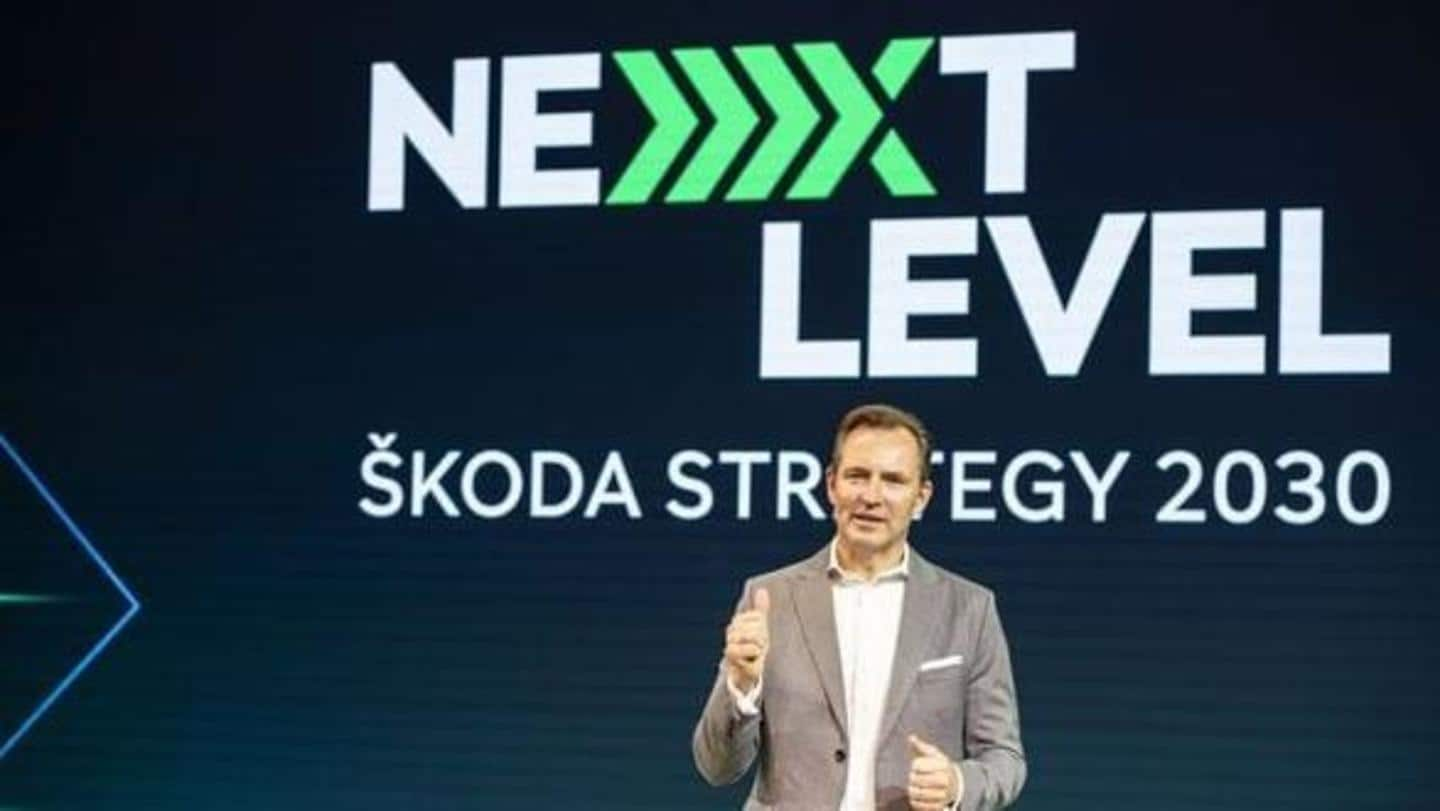
SKODA to launch three new electric cars by 2030
What's the story
At the 'NEXT LEVEL - SKODA STRATEGY 2030' event, the Czech automaker has laid bare its plans for the next decade.
The company wants to add three new models to its EV line-up, lower its fleet emissions by more than 50%, and secure a place among the five bestselling carmakers in the European region.
Here are more details
New models
The three cars will be positioned below the ENYAQ iV
In order to achieve a pure-EV market share between 50-70% in Europe by 2030, SKODA will introduce three new electric cars that will be positioned below the ENYAQ iV.
They include a small hatchback which will be a technical twin of the VW ID.1, a compact crossover, and another vehicle in the same segment as the OCTAVIA.
Plans
Aim to change the Czech market into an "electromobility hub"
From 2022 onwards, SKODA will commence in-house production of EV batteries for the ENYAQ iV and aims to transform its home market into an "electromobility hub."
Its factories in Kvasiny, Mlada Boleslav, and Vrchlabi will commence production of EVs and associated components.
Currently, the company manufactures drive batteries for the SUPERB and OCTAVIA plug-in hybrids as well as for other Volkswagen Group cars.
Next step
SKODA KUSHAQ will be introduced in other emerging markets
With its objective to expand, explore and engage, SKODA aims to become a top-selling carmaker in Europe by 2030 and also become the leading European brand in markets like Russia, India, and North Africa.
As part of its 'India 2.0' project, the company has already started the production of the KUSHAQ. The SUV will also be introduced in other emerging markets.
Other projects
SKODA PowerPass will make EV charging more convenient
Increasing customer engagement with its cars is also on SKODA's radar.
The company is working on a project called 'PowerPass' to make charging EVs more convenient. It will be offered in more than 30 markets and at more than 210,000 charging stations in Europe.
From 2030 onwards, the carmaker plans to manufacture four-wheelers with net-zero carbon emissions at all its Czech and Indian factories.